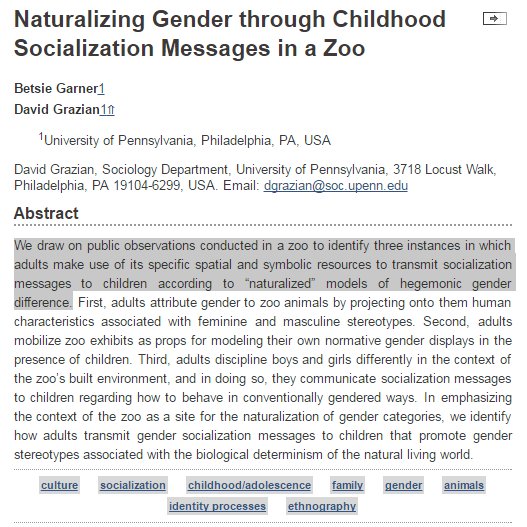
Regarding variables that are not linked to sex differences, political
orientation, academic employment status, and parental status have essentially zero
bearing on attitudes. Thus, being conservative or liberal, an academic or not, or
being a parent have essentially no effect on whether people believe that behavioral
differences between dogs and cats or human universals (such as smiling to express
joy) are the result of organic evolutionary forces. We contend that these null findings
are consistent with the idea that the evolutionary scholarship focusing on non-sexdifferences
(e.g., the universal nature of kin selection in humans) is politically correct
and palatable across the demographic groups studied in this research. In fact, these
findings suggest that findings from human evolutionary psychology that do not
pertain to sex differences are just as non-politicized as are behavioral differences
between cats and dogs.
http://www.evostudies.org/pdf/GeherVol2Iss1.pdf
So the "nurture" position is only advanced when inconvenient science overlaps with politics. Where the science is not politically inconvenient, people accept science as it is. Anyway, in light of the Olympics going on right now, it's a bit bewildering how anyone would contend that gender differences are the result of "nurture."

